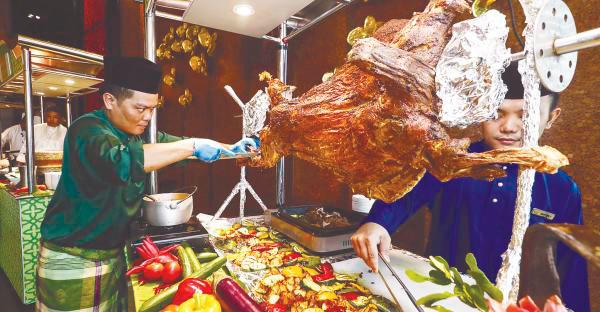IN conjunction with the holy month of Ramadan and approaching Aidil Fitri celebration, the government, especially the Public Service Department, should closely monitor the spending of all its departments, including public schools and public institutions of higher learning in the country.
Ramadan is supposed to be a month of devotion for Muslims, but it can also become a month of feasting and wasteful spending if we are not cautious.
Islam enjoins its followers to avoid gluttony, waste and extravagance at all times. There is concern that some government departments will spend extravagantly on office decoration, organise grand breaking of fast meals in offices and plan huge and lavish Aidil Fitri functions, activities and programmes.
As the country and its people are still facing issues over the high cost of living and economic uncertainty, it is not wise for these departments to spend lavishly.
Everyone needs to understand and respect the main objective of Ramadan, which is a month of minimalism and reduction.
Moreover, it is a month of being more purposeful with our resources. There is no room for extravagance and wastefulness. Islam also strictly forbids wastefulness.
As stated in the Quran: “Surely the wasteful are like brothers to the devils. And the Devil is ever ungrateful to his Lord”.
Important to note, that the calls for minimalism and moderation should not be confined to Ramadan only, they should be practised at all times.
Government departments should take this issue more seriously as they are using public money for their operations, and it should be spent prudently at all times.
The government needs to strictly enforce the Financial Procedure Act 1957 to deal with the problem. If the breach is more serious, action should also be taken against the official under any criminal offences, including the Penal Code.
All government departments and agencies should take heed of the instructions issued by the government recently. According to the chief secretary, to ensure optimal government spending, the organisation of events, ceremonies, meetings, seminars and workshops is restricted to programmes deemed necessary. This was stated in the Ministry/Department Public Expenditure Control Directive circular to all secretaries-general and heads of departments and agencies.
It was also suggested that such events be held at public premises or public training institutes. Meetings are encouraged to be held online or via video conferencing to reduce logistical costs, optimise time and decrease claims on expenses.
The directive also highlighted the optimal use of utility resources, such as electricity, water and office equipment, while promoting the avoidance of food and beverage during meetings and events.
In addition to early planning and encouraging the use of corporate credit cards, booking flight tickets should be done after comparing the best prices to get value for money.
The directive also stated that controlling officers must comply with the rules for official travel abroad as stipulated in the Cabinet Secretary’s Directive. It involves attending meetings, scheduled or periodic discussions or conferences that have been approved in the annual budget or by the Cabinet and are deemed essential and have significant impacts on national interest.
Prime Minister Datuk Seri Anwar Ibrahim when tabling Budget 2024 touched on aspects of saving and avoiding the wastage of public financial resources. Stern action should be taken against any government departments or agencies that fail to follow the rules.
Public money should be spent on activities that will benefit the people and the country.
The writer is an associate professor at the Faculty of Syariah and Law at Universiti Sains Islam Malaysia. Comments: letters@thesundaily.com









